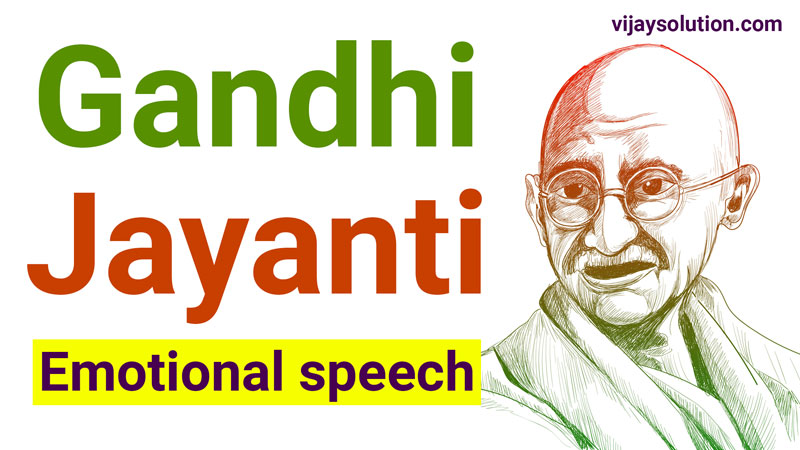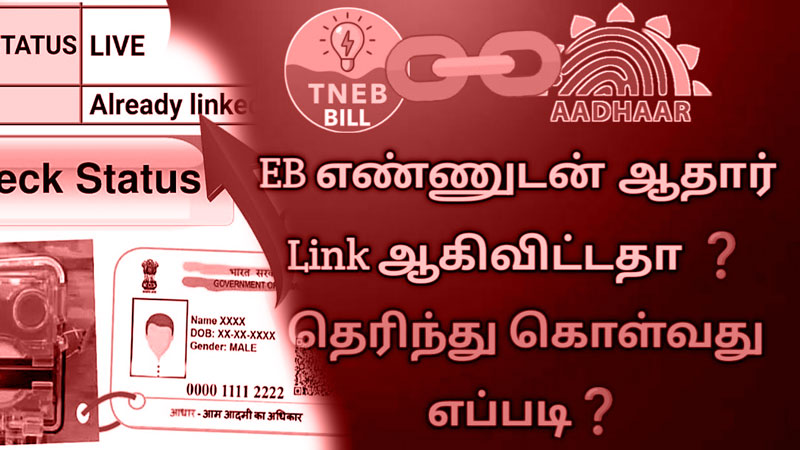Speech on Gandhi Jayanti, Gandhi Jayanti Speech, Why is Gandhi Jayanti celebrated?
Gandhi Jayanti: Friends, every year in India, Gandhi Jayanti is celebrated on 02 October as a national festival in memory of Gandhiji, on this day many programs and competitions take place in the school and office, out of which the competition of speech (Gandhi Jayanti speech) is also usually organized by Gandhi Ji for his extraordinary leadership in the freedom struggle and is fondly called as Bapu.
today we are for you Gandhi Jayanti speech on or Gandhi Jayanti speech We have brought you from whom you can take inspiration and you will get an idea of how you can also present a passionate and inspirational speech on this national festival, although there is no need to prepare a speech on the occasion of Gandhi Jayanti. Because every Indian is well aware of Gandhiji, we are going to tell you how a good inspirational speech or speech can be given.
Speech on Gandhi Jayanti | Gandhi Jayanti speech (speech-1)
Respected Principal Sir, teachers, and my dear friends, today we all have gathered on this so that we can remember the birthday of the greatest personality of the century, our dear ‘Bapu’ and the father of the nation and the great efforts made by him on Gandhi Jayanti. as to be remembered.
I hope that every person present Gandhiji is well known and I am not going to tell this anything new, but today we will remember Gandhiji and learn from his actions and follow the path of ‘non-violence and truth’ told him. You will achieve success in life.
Friends, the full name of Gandhiji was Mohan Das Karam Chand Gandhi, he was born on October 02, 1869, in a place called Porbandar or Sudamapuri, which is located in the state of Gujarat. He was a person of shy and honest nature since childhood and walked on the path of truth. was a person.
Every year Gandhi Jayanti is celebrated as a national festival to pay tribute to Gandhiji. He was a world-famous person and he is considered the father of non-violence all over the world.
Gandhiji obtained the degree of a barrister from London, which is also called advocacy in colloquial language, he went to Africa and did advocacy work, and he also satyagraha salt movement to stop the atrocities on outsiders and racial discrimination. He also founded an organization Natal Indian Congress, he started this movement without any weapons and war and got an extraordinary victory.
Gandhiji’s use of this non-violence brought him world fame and proved that even the biggest war can be won without weapons. The war can be won only by killing and weapons.
Gandhiji was very attached to the word Ram and he was always engaged in devotion to Ram, after which Gandhiji came to be known as Mahatma Gandhi, he studied great books like Bhagavad Gita, Buddhacharita and the Bible and came to the conclusion. Truth and renunciation is the ultimate religion in the world, even today we remember these thoughts of Gandhiji and follow them and wish for success in life.
With this, I would like to end my speech, Raghupati Raghav Raja Ram.
Jai Hind, thanks.
Join Gandhi Jayanti Telegram Channel

Also Read…
- How to download GB WhatsApp?
- Good Bad Girl Download [4K, HD, 1080p 480p, 720p] Review
- What is Mutual Fund And how to invest?
- 7StarHD 2022 – Movies 300MB Hollywood Hindi Download
- KhatriMaza – Bollywood Movies in Hindi A to Z 720p Download
- MovieVerse – Movies Download, Web Series
- Double XL Movie Download MP4Moviez 720p, 480p Watch Online
- TamilGun – Malayalam Dubbed Movies Download Online Free
- ExtraMovies – Bollywood, South Hindi Dubbed Movies Download
- PagalMovies – Telugu, Tamil Hindi Dubbed Movies Download
10 interesting things related to the life of Gandhiji
Friends, our Bapu Mahatma Gandhi, who has received the status of the Father of the Nation of the country, is one of the great revolutionary leaders of the Indian national movement, his non-violence, and non-violent politics were all convinced of Gandhiji’s ideas and his policies For most of the great revolutionaries, it was only a fantasy. It seemed like a golden dream to believe that the country should be given freedom under these policies.
In this article, we have tried to explain the life of Gandhi Ji to you through 10 sentences, in which 10 interesting things related to the life of Gandhi have been told which every Indian must know, so let’s know the life of Gandhi ji. What are those interesting things related to it?
- The people of India celebrate Gandhi Jayanti (Gandhi Jayanti 2022) every year on 02 October, because on this day, on 02 October 1869, Gandhi was born in Porbandar or Sudamapuri, which is located in Gujarat.
- Gandhiji was born in a Vaishnava family which belonged to Diwani. His grandfather Uttamchand or Ota Gandhi was the Diwan of Porbandar who later had to move to Junagadh State. His father Karamchand Gandhi was also a Diwan who was transferred from Porbandar to a local of Rajkot. Was transferred to the court, perhaps this was the reason that Gandhiji had a unique ability of leadership and leadership from birth.
- Gandhiji obtained a degree as a barrister from London, which is also spoken in today’s language, he also had knowledge of English and French language abroad, due to which he emerged as a skilled speaker and hypnotized in his speech. Unique art also developed, perhaps this was the reason that when Gopal Krishna Gokhale met Gandhi, he had full faith that only Gandhiji could give freedom to India.
- Gandhiji recited the Bhagavad Gita, Buddhacharita, and Bible at the behest of a friend, which had a great impact on his life, after reading which Gandhiji attained enlightenment, and after reading these scriptures, he came to the conclusion that renunciation is the ultimate. There is religion and there is no religion greater than this.
- When Gandhiji reached India after getting the education of a barrister, he had to wander here and there for a living, first, he started practicing law in Mumbai but due to a lack of interest in work, he decided to become a teacher, etc. But that too did not succeed. In the meantime, Gandhiji was invited from Africa to fight the case of a wealthy Seth of Africa and he left for Africa, he did not see racial discrimination and atrocities on Indians in Africa, to which he gave a befitting reply to the Natal Indian Congress. Created an organization called Satyagraha and started the Satyagraha movement, in which he got success, this movement was completely non-violent movement, after which Gandhiji became convinced that even the biggest war could be won without weapons, which later became a milestone in the Indian movement. proved to be a stone.
- While living in Africa, Gandhiji became recognized in the world by, the non-violence and disobedience movement was actually a unique art that had won a major victory against the oppression of the people of India in Africa.
- When Gandhiji returned to India, he made many small movements and had success in them, in which Champaran, Kheda, and Khilafat movements were small-level movements, and non-cooperation, and civil disobedience and Quit India movements were large-level movements. It was based on Satyagraha, which means insistence on truth, that is, what is true and right should be followed.
- Gandhiji is also known for his devotion to Ram. It is believed that he was a shy personality in his childhood, who spoke very little and could hardly be any friend of his, he was also treated by snakes and ghosts for which he A woman who did this work advised her to chant Ramnaam at the rate, gradually she became so absorbed in Rambhakti that Ram Bhakti got absorbed in her body and mind till the end when Nathuram Godse gave her When he was shot dead, the last words from his mouth were ‘Hey Ram.
- Gandhi’s thought was “I am not a politician in the guise of a saint, but the truth is supreme intelligence, so sometimes my actions seem to be from a well-mannered leader, I understand that I have no other policy than the policy of truth and non-violence. For the salvation of my country and even my religion, I will not sacrifice truth and non-violence, even though religion and country cannot be saved by sacrificing them.
- Gandhiji did not believe in monopoly and privilege, he believed that a decision that could not benefit the smallest person of the common man who deserved it, any such decision was invalid for him, he believed that the British had to run away from the country. There is no real freedom, in fact, freedom will be called when any law made by the government can reach the person who is entitled to it.
History of Mahatma Gandhi on Gandhi Jayanti
Mahatma Gandhi, who is called the “Priest of non-violence” and “Father of the Nation”, is also addressed by the name Bapu. Mahatma Gandhi was born on Friday, October 2, 1869, in a simple family at a place called Porbandar in Gujarat. His full name is Mohandas Karamchand Gandhi. His father’s name was Karamchand Gandhi and his mother’s name was Putli Bai.
His mother was a religious woman who used to fast regularly. Gandhiji was brought up in a family that believed in Vaishnavism. Jainism had a great influence on Mahatma Gandhi, due to which practices like non-violence, truth naturally started flourishing in Gandhiji since childhood. He was the youngest child of his parents, having 2 brothers and 1 sister.
Gandhi’s father belonged to the Hindu and Modh Bania caste. People used to affectionately call Gandhiji as Bapu. Gujarāt was his mother tongue. Bapu ji, who had a simple life, high-minded, struggled with the British rule while walking in the path of non-violence till his last breath. In the Quit India Movement, Non-Cooperation Movement, and Civil Disobedience Movement, Gandhiji made an important contribution in getting India’s independence by connecting people of all sections with him.
Mahatma Gandhi ji was born in a simple Hindu family. His father Karamchand Gandhi ji was a diwan. Gandhi ji considered every religion as equal, but Jainism had a special effect on him. In Jainism, non-violence has been kept paramount. As a result of the concept, Gandhiji has given an important place to non-violence in his Satyagraha. Gandhiji always kept the Bhagavad Gita with him and followed it in his life. He believed in God as the form of truth and non-violence as the way to attain God in that true form. This composition of poet Narsi Mehta was very dear to Gandhiji-
Gandhiji as a student – Gandhiji was of a simple personality. As an average student, he was educated at Alfred High School. In student life, he also won awards occasionally. He was not sharp in studies, but he used to devote his mind to domestic work and the service of his parents.
Gandhiji considered King Harishchand as his ideal, a symbol of truth. At the age of only 13, he was married off to the girl of a merchant of Porbandar. In 1887, Gandhi passed the metric examination from the University of Mumbai and was enrolled in Samaldas College, Bhavnagar, Gujarat. Gandhiji’s dream was to become a doctor, but the family was a follower of Vaishnavism where dissection was not allowed. The family wanted to make Gandhi a barrister.
After passing the matriculation examination, Gandhi went to England to study law. In the year 1888, Gandhiji kept his footsteps in London, where he enrolled himself in the law school “Inner Temple”. Studied law in London. After completing his law studies in 1890, he returned to India. When Gandhiji came to India after completing his advocacy, he made his contribution to remove the problems of the common people from the atrocities being done by the British rule.
Mahatma Gandhi’s Contribution to South Africa – Against the racial discrimination happening to blacks and Indians in South Africa and as a result of the derogatory policies, Gandhiji decided to fight discrimination. At that time in South Africa Indians and blacks were denied the right to vote, they were denied some rights like walking on the pavement. In the year 1906, an ordinance was issued by the “Tanswal Government” of South Africa for the registration of the Indian public, which was a derogatory ordinance for Indians. In the year 1893, Gandhiji was invited by Dada Abdullah, a businessman from South Africa, to fight the case in South Africa.
After Gandhiji reached South Africa, an organization named “Natal Indian Congress” was established by him in the year 1894. Went. Satyagraha was started by Gandhiji from here. The conflict in South Africa continued for more than 7 years. The struggle against this humiliating ordinance was continued by thousands of Indians. After living in South Africa for about 21 years, Mahatma Gandhi returned to his country, India.
Gandhi ji’s arrival in India – After living in South Africa for about 21 years, Mahatma Gandhi ji in the year 1915 at the invitation of Gopal Krishna Gokhale, senior leader of the Indian Congress to get freedom against the oppressive policies of the British rule in India. The country came to India. He was warmly welcomed by the Indians. People started addressing him as Mahatma. To prepare the outline of the freedom struggle, Gandhiji started doing village-villages of the country.



